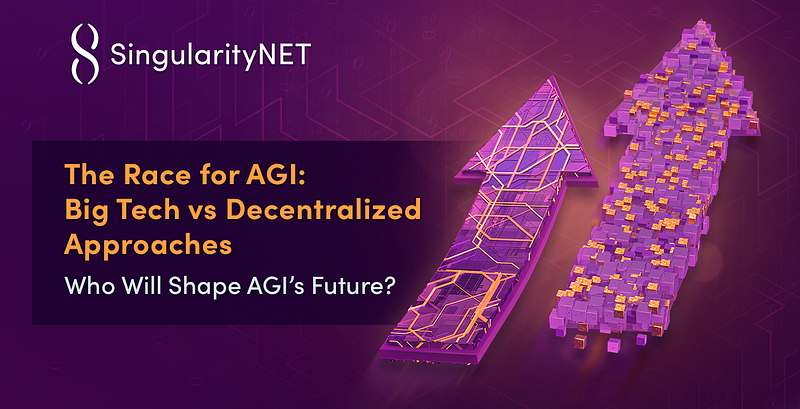
Dear Singularitarians,
The race for Artificial General Intelligence (AGI) is on in fact, it has been on for decades, ever since AI research began and since the 1950s when Alan Turing published his seminal paper Computing Machinery and Intelligence, which introduced the Turing Test as a criterion of intelligence.
(Prominent figures in the AI world like Dr. Ben Goertzel are furthering this pursuit, proposing additional benchmarks such as the robot college student test. This test, as is suggestive from the name itself, advocates an AI being enrolled in a college and getting a degree using the same resources as other students enrolled for the same degree.)
Weve come a long way since the Turing Test. From early AI programs in the 1960s to neural networks and machine learning by the end of the last century, all the way to deep learning and beyond, the race for AGI has evolved from early theoretical discussions and basic AI programs to sophisticated systems with the ultimate goal of creating machines that possess human-like general intelligence.
Today, Big Tech companies like Google, Microsoft, OpenAI, and Facebook are at the forefront of the AGI race. These organizations have substantial resources, state-of-the-art infrastructure, and access to vast amounts of data, all important elements for advancing AGI research.
For starters, they can allocate billions of dollars to research and development and boast cutting-edge data centers and high-performance computing systems necessary for complex AI models. These companies attract high-tier talent from around the world, fostering a rich environment for innovation. With services used by billions of people, they have access to unparalleled amounts of data vital for training sophisticated AI models. Furthermore, they can seamlessly integrate new AI technologies into their existing platforms, ensuring rapid deployment and scalability.
However, this centralized approach also presents significant challenges and concerns. The concentration of data and power in a few hands raises ethical and privacy issues, potentially leading to misuse and abuse given the human factor involved. The dominance of a few corporations in AGI development could result in monopolistic practices, and biases inherent in these organizations data and algorithms can lead to skewed AI behaviors and decisions. Additionally, these companies often operate behind closed doors, with limited transparency about their research processes and objectives, making it difficult for the public to hold them accountable.
Is this how we as a humanity want the Singularity to happen? Behind closed doors, with a few people pulling the strings on what is set to be the most important technology developed in the history of mankind? Or do we want the Singularity to be democratized and decentralized, with everyone having a voice and ultimately reaping the benefit of this transformative innovation?
A decentralized approach to developing AGI would emphasize openness, collaboration, and distribution of resources (and naturally, benefits). Independent researchers, open-source communities, and organizations like SingularityNET are key players in this arena.
Decentralized projects often operate with a philosophy of transparency, making their research, data, and models open to public scrutiny and collaboration. This openness fosters trust and accountability and aims to democratize access to AI technologies, potentially leading to a more equitable distribution of benefits across society.
The global community of researchers collaborating on decentralized models brings diverse perspectives, fostering innovation and driving rapid advancements. Not to mention, decentralization also creates a more resilient ecosystem, where the failure or co-opting of one entity does not halt progress.
Yet, decentralized approaches face their own set of challenges. Independent and decentralized groups often lack the substantial financial and computational resources available to big tech companies, which can slow progress and limit the scale of experiments and implementations. Coordinating efforts across a decentralized network can be challenging, with the risk of fragmentation leading to duplication of work and inefficiencies. But this isnt the case with one leader in the decentralization of AI SingularityNET.
Since its inception in 2017, SingularityNET has had one core vision to create decentralized, democratic, inclusive, and beneficial Artificial General Intelligence.
The SingularityNET Platform aims to democratize AI, allowing anyone to access and contribute to AI development, ensuring that the technology benefits humanity. Our decentralized marketplace allows for the democratization of AI technology, and we are committed to developing AI to benefit all sentient beings.
With a robust community of AI developers, researchers, and enthusiasts, our goal is to create beneficial AGI by fostering a decentralized, transparent, and collaborative ecosystem. Our commitment to ethical considerations, strategic partnerships with those who share our values, and community participation ensures that the development of AGI is aligned with the broader goal of benefiting humanity and all sentient beings.
The pursuit of AGI is one of the most ambitious and transformative scientific endeavors of our time.
Whether driven by the concentrated power of big tech or the collaborative efforts of decentralized networks, the development of AGI will shape the future of humanity in profound ways. Its up to us as a humanity to come together and decide how.
SingularityNET is a decentralized Platform and Marketplace for Artificial Intelligence (AI) services founded by Dr. Ben Goertzel with the mission of creating a decentralized, democratic, inclusive, and beneficial Artificial General Intelligence (AGI).